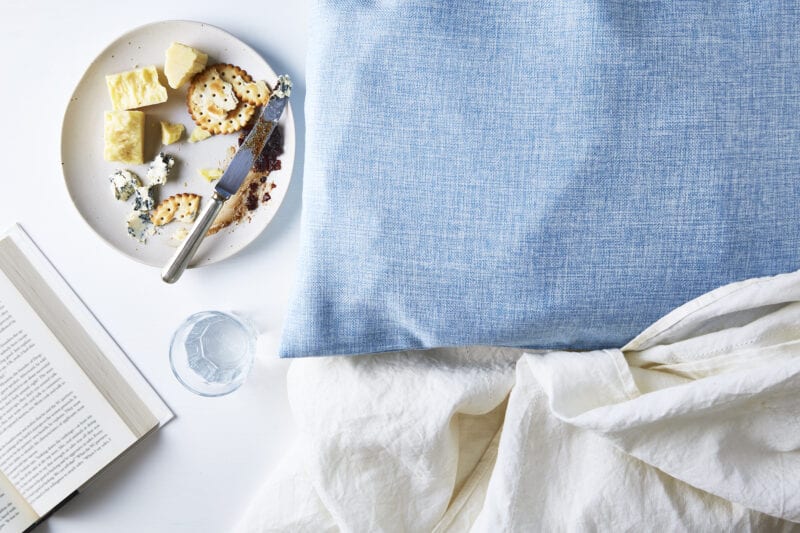Is what you eat affecting your sleep?

Last Updated on 9th January 2018 by Will
Feel like you could do with a good night’s sleep? Well, you’re not alone. Many people suffer from poor sleep during the winter months (especially over the Christmas holidays). One big reason for this that people often overlook is diet.
Eating too much (who isn’t guilty of a little festive indulgence!?), lacking key nutrients in your diet (unsurprisingly, bacon-wrapped sausages don’t have that many nutrients), and drinking too much (sorry) can all have a negative impact on the quality of our sleep.
Getting a good night’s sleep is essential for maintaining our health. Prolonged periods of bad sleep can compromise the immune system and are a risk factor for heart disease, diabetes, obesity and shortened life expectancy (NHS).
Some of the symptoms associated with poor sleep are:
- General fatigue
- Depression
- Anxiety
- Irritability
- Frequent illness
- Lack of concentration and inability to cope with simple tasks
- Weight gain
“One third of Britons now sleep for just five-to-six hours per night.” (The Sleep Council)
So how much sleep do we need?
There’s no definite number of hours you should sleep each night – we’re all a little different. It’s generally recommended that we need roughly 8 hours of good quality sleep (NHS). If you feel tired most of the day, the chances are that you haven’t had enough sleep!
According to research carried out by The Sleep Council (yes, that’s a real thing!), one third of Britons now sleep for just five-to-six hours a night. One in three adults also suffer from poor sleep or insomnia. Sleeping less than 5 hours a night is considered to be a very poor night’s sleep.
Why are people sleeping badly? The main reasons:
Electronic Insomnia: Exposure to blue lights from computers, iPads and smartphones stops our bodies from secreting the hormone melatonin, which plays a critical role in when we fall asleep and when we wake up.
Diet and nutrition: Eating the wrong foods (and at the wrong times) can significantly affect our sleep.
Almost half of Britons say that stress or worry keep them awake at night.
Medication: Some medication can contribute to insomnia
Poor lifestyle: Lack of exercise, being overweight and overconsumption of alcohol are the main culprits here.
Shift work: This disrupts your natural sleep cycle.
A snoring partner!
Indigestion and acid reflux.
5 Nutrition tips for a good night’s sleep
1. Avoid eating late at night.
Especially food which is hard to digest, such as those high in saturated fat like red meat and cheese (hence the belief that cheese gives you weird dreams!).
2. Avoid stimulants 3 to 4 hours before bedtime.
Caffeinated drinks, and sugary food and drink all interfere with sleep patterns. Alcohol may help you to fall asleep – but it’s also makes you more likely to wake up a few hours later.

3. Avoid tyramine containing foods just before bed.
Tyramine stimulates adrenaline, which may disrupt your sleep. It accumulates in foods over time, so is particularly high in food like cured meat, aged cheese and pickled produce. However, it’s also found in: tomatoes, aubergine, courgettes, spinach and potatoes.
4. Include foods which are rich in tryptophan, B3 and B6.
Tryptophan is an amino acid which converts to serotonin, a neurotransmitter which induces sleep. B6 and B3 are required for the conversion of tryptophan to serotonin.



5. Eat plenty of magnesium and calcium rich foods.
Both of these minerals have a tranquilising effect.


Sleep promoting evening snack suggestions:
- A cup of warm milk or almond milk with an oat cake.
- A small bowl of plain yoghurt with some seeds and chopped banana.
- A slice of wholemeal bread with nut butter.
- A slice of this banana bread.
Bonus: 7 lifestyle tips for better sleep
- Do not look at computer, smart phone or iPad just before bed.
- Try and go to bed around the same time every night.
- Exercise regularly.
- Keep the bedroom dark and cool.
- Epsom salts in a bath can help you to relax.
- Keep a notebook by your bed and write a list of what you need to do the next day.
- Meditate while in bed. There are a number of good apps that can help you with this. Wind down for at least an hour before bed.
Eating a well-balanced diet, managing stress, taking regular exercise and sticking to a good night time routine with no electronic devices will definitely improve your chances of getting a good night’s sleep!
Want to sleep well, eat well and wake well in 2018? Gousto have teamed up with Simba Sleep and Lumie – we’re giving away an amazing prize bundle in a January competition!
The winner will get:
- A Simba Hybrid mattress
- 12 months of Gousto food boxes
- 4 x Lumie Bodyclock lights

 MENU
MENU CLOSE
CLOSE
